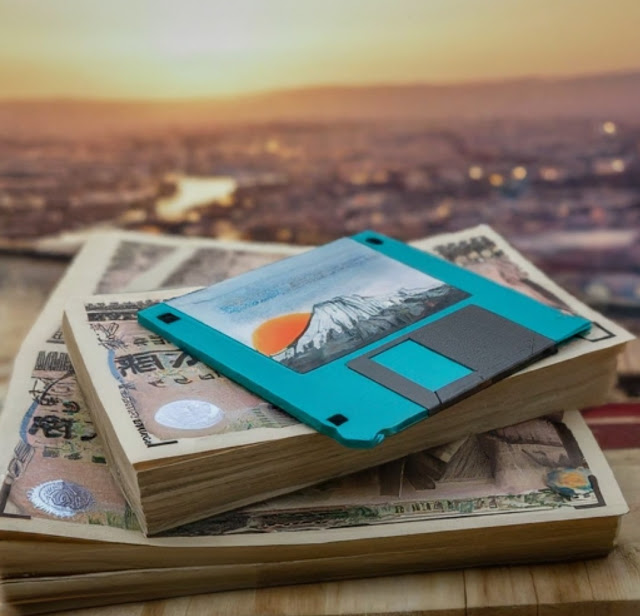Is your government using floppy disks? Japan's story highlights the need for technological advancement in the digital age.
 |
| Beyond floppy disks; Japan's progress reveals a global issue. |
Tokyo, July 4, 2024:
The news of Japan's Digital Agency successfully eliminating floppy disks from government computer systems is a cause for celebration. However, it also serves as a stark reminder of the persistent digital divide that exists on a global scale.
For decades, floppy disks, those once ubiquitous squares of magnetized plastic, remained surprisingly prevalent in Japanese government operations. Their continued use, long after the rest of the world had moved on to more efficient storage solutions like USB drives and cloud computing, raised concerns about security and accessibility. This week's announcement signifies a significant step forward for Japan's digital modernization efforts.
Digital Minister Taro Kono's "war on floppy disks" isn't just a catchy headline; it represents a crucial initiative. Replacing these outdated disks with modern technology eliminates vulnerabilities associated with aging hardware and software. Additionally, it streamlines data access and management, improving government efficiency and potentially enhancing citizen services. Kono's agency's successful removal of floppy disks from nearly 1,900 government procedures demonstrates the tangible impact of such efforts.
However, Japan's story isn't an isolated incident. The news sheds light on a broader issue: the global digital divide. While many nations have embraced technological advancements, others continue to rely on outdated systems. A prime example is the case of the US military's Strategic Automated Command and Control System (SACCS) exposed by CBS's 60 Minutes in 2019. This critical system, responsible for receiving nuclear launch codes, still relied on 8-inch floppy disks – a technology introduced in the 1970s. The reliance on such outdated technology presented serious security risks and highlighted the need for modernization.
The story of Japan and the US underscores the potential dangers of clinging to the past. Outdated technology can be vulnerable to cyberattacks, hinder efficiency, and limit access to vital information. In today's interconnected world, these issues have the potential to impact not just individual nations but global security and prosperity.
Looking ahead, the international community needs to work towards bridging the digital divide. Developed nations can play a crucial role by sharing resources and expertise with developing nations to help them embrace contemporary technologies. This could involve providing financial aid, technical assistance, and educational programs. Additionally, fostering collaboration and knowledge exchange between nations can accelerate the process of digital modernization.
Japan's "war on floppy disks" may be a victory in itself, but the battle for global digital modernization is far from over. Continued efforts are needed to ensure all nations have access to the technological advancements that drive progress and prosperity. Only then can we truly close the digital divide and create a more secure and interconnected world for all.